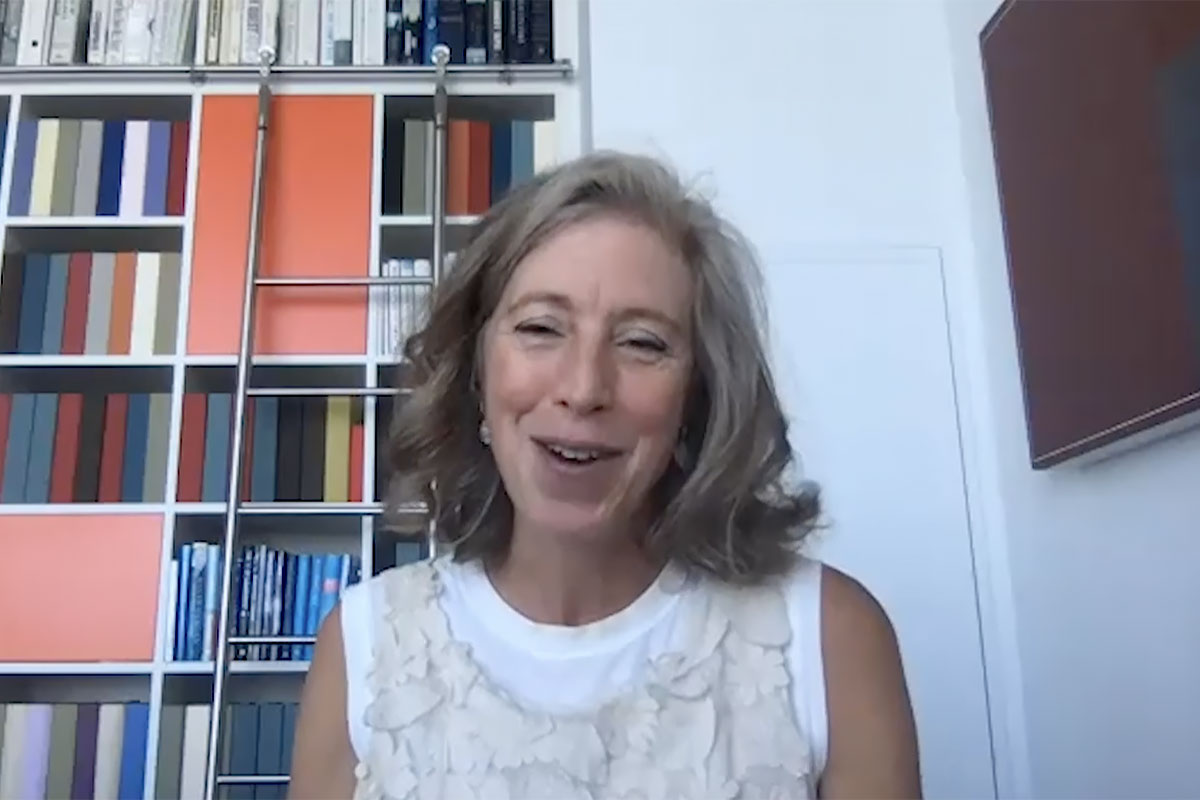Self-driving cars are cool, but — especially in a COVID world — they’re not the last word in getting around town.
“What if instead of opening the newspaper every morning to see what the current infection rates are, you were able to open an app that told you — on your block, between where you live and the grocery store — the data you need to know to make decisions about getting from here to there, today?”
With that scenario, Vanessa Colella (M.A. '96), Chief Innovation Officer for Citi (heading the Citi Ventures and Citi Productivity teams), deftly encapsulated her vision for moving beyond artificial intelligence to “artificial enlightenment” — tools that enable more effective decision-making “with the information we need at that moment, in context, in the situation that we’re in.”
Addressing a virtual audience at TC’s 2020 Academic Festival, Colella, who has spoken on the same topic at the World Economic Forum at Davos, explained that since 1965, when the term “artificial intelligence” (AI) was coined, technology has been built to mimic human thinking. The guiding premise has been that “the world is full of massive amounts of data, and the way we have to consume that data in order for our brains to handle it is to summarize it, so that rather than understand millions of points of information, we really only have to deal with a couple.” The past 10 years, in particular, have seen an influx of powerful computational tools of this kind, to the point that today, Colella said, “every single second of every single day, 127 new devices get added to the Internet.”
TC Talks | From Artificial Intelligence to Artificial Enlightenment by Vanessa Colella
But the problem with AI, she said, is that “every time that we aggregate data, we make it easier for us to understand what that information is and more difficult to understand the nuance underneath the information.”
For example: “Think about how many times you’ve looked at the unemployment statistics this year. Certainly, we know that job dislocation has been something that we never could have predicted. But the aggregate number doesn’t really help you, right? It doesn’t tell you much about whether you have a job and can feed and care for your family in the place that you live.”
Every time that we aggregate data, we make it easier for us to understand what that information is and more difficult to understand the nuance underneath the information.
— Vanessa Colella (M.A. '96), Chief Innovation Officer for Citi
At Citi, Colella said, the focus is on investing in technologies that augment, rather than simply mimic, human intelligence for everyone from rescue workers to consumers.
As for self-driving cars, Colella isn’t knocking them. But she did offer one telling comment:
“The reality is that it probably takes seven years to teach a car whether it can cross the street. I can teach my seven-year-old whether to cross the street in 30 seconds.”
[Read a profile of Vanessa Colella that appeared in TC Today magazine.]
[Watch other installments of the TC Talks series delivered at Academic Festival 2020 by Val Ackerman, Commissioner of the NCAA's Big East Conference, and Sandra Kapell (M.A. ’93), Executive Vice President and Chief Administrative Officer of Madison Square Garden Entertainment Corporation.]

